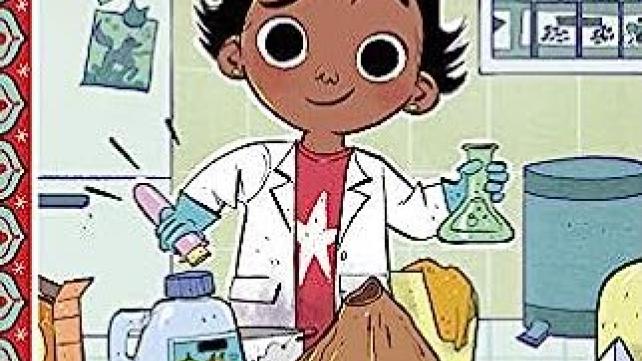
Yasmin the Scientist is an entertaining way to introduce the topic of scientific discovery with young Muslim readers. In Saadia Faruqi’s short chapter book–which is one of many stories in the popular Yasmin series– the main character needs to prepare for a science fair at school. She is worried because coming up with an idea is hard. Her teacher, Ms. Alex, reassures her, “You’ll think of something. After all, science is all around us. Outside. In our classroom. Even in our kitchen!”
Many young Muslim readers who live in the United States will appreciate seeing a protagonist who, like them, calls her parents “Mama” and “Baba” and has dark skin, eyes, and hair. Her Nani (grandmother) is illustrated with a loose hijab and kameez. They are clearly a Muslim family living in the West, simultaneously honoring their native culture while cooperating nicely with the non-Muslims around them. Illustrator Hatem Aly’s pictures are colorful, vibrant, and likely to appeal to youngsters.
Yasmin is delightfully independent and proactive. She insists that she wants to build an exploding volcano all by herself. Her father agrees, saying, “I’ll be in the living room if you need me.” In the process of constructing her volcano, Yasmin learns that science can be messy and challenging. She has to try several times to mold the clay into the right shape and then accidentally spills vinegar and baking soda on the table. Later, a little of the baking soda gets added to her lemonade, causing it to fizz. Yasmin is surprised when her beverage erupts. She decides to turn this unexpected discovery into her science project.
At the end of the book, there is a section called “Think About It, Talk About It.” Here the author poses questions to young readers, such as: “If you could be in a science fair, what project would you present?” and “Think of a time with schoolwork, an art project, or a game when you needed to try a couple different ideas before you found one that worked. What made you keep trying?” Discussing these questions with children will help solidify the lessons of the book and might spark their interest in science.
In addition, Faruqi offers a section called “Learn Urdu with Yasmin!” in which she explains that Yasmin’s family speaks both English and Urdu, which is a language from Pakistan. A short glossary provides the meaning of the words “kameez,” “naan,” “salaam,” and more. Another short section called “Pakistan Fun Facts” introduces young readers to a few details about the country’s geography, languages, and foods. Finally, “Make a Fizzy Lemonade” shows a simple recipe for making Yasmin’s own science experiment.
Yasmin the Scientist is a deceptively simple book for young readers. While the science experiment itself is not complicated, and Faruqi’s words are easy to read, there are many lessons throughout the book:
- Children can accomplish things by themselves
- To succeed, you must persevere
- Science can be found everywhere
- Muslims are normal and positive members of their communities
- Adults can empower children by letting them take the lead
- Science is fueled by curiosity, trial and error, and creativity
For readers ages 5-8, Yasmin the Scientist can be a delightful introduction to scientific thinking and experimentation. As a Muslim mother, I appreciate seeing the Yasmin series in our local library, alongside all the other short chapter books. I am glad that my children can see Muslim characters in everyday situations, living their life normally without sacrificing their identity. If my youngest child had a science fair to prepare for, this is definitely a book I would want to share with her.
Laura El Alam is a first-generation American Muslim and the author of over 100 published articles. She has written a children’s book, Made From the Same Dough, due to be released in July, 2023. You can visit her online at www.seaglasswritingandediting.com.

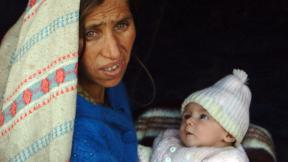
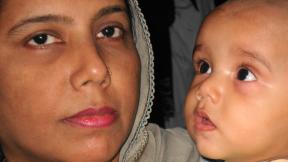
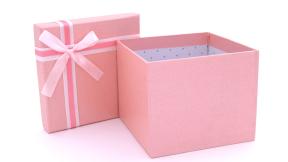
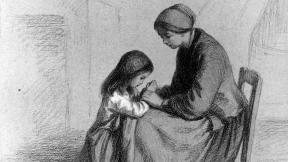
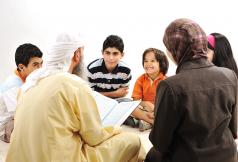


Add new comment